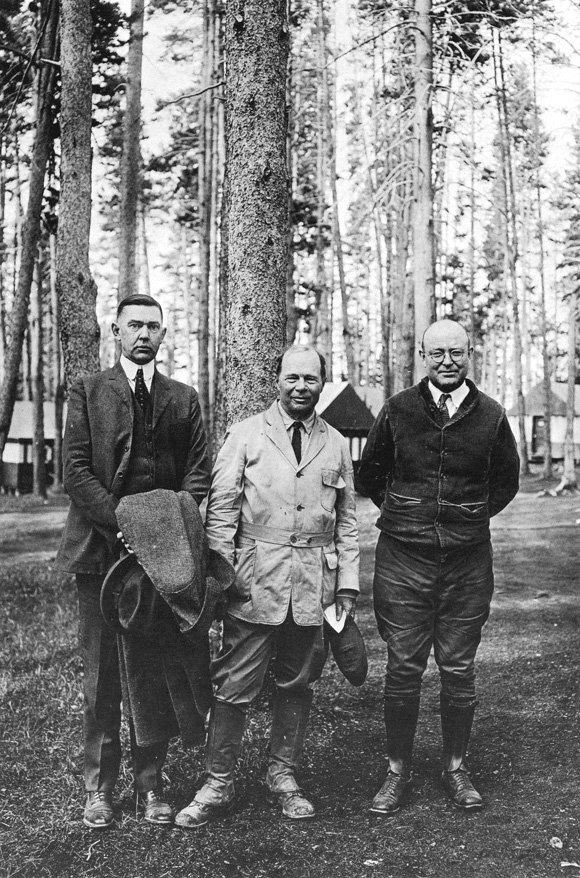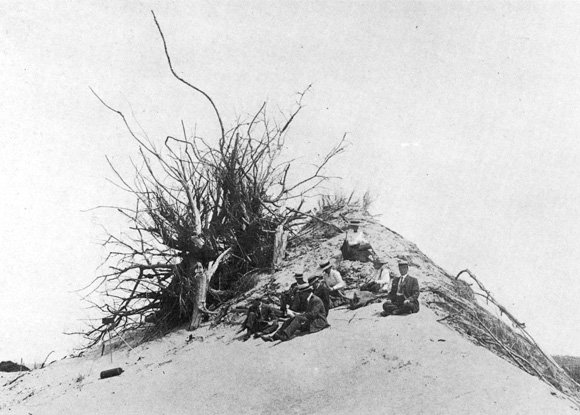Henry C. Cowles (1869-1939): Botany
His dissertation, "An Ecological Study of the Sand Dune Flora of Northern Indiana" (1898), opened a new field of inquiry. Largely a science of classification during much of the nineteenth century, botanical research was just being transformed into a study of theoretical relationships between plants and other natural life. Cowles's concern with temporality helped establish ecology as the investigation of a changing, natural environment, defining patterns of transformation over time as plant communities succeed one another.
Cowles published relatively little. His doctoral dissertation and a few articles written early in his career formed the bulk of his research publications. He exerted a substantial influence on his students, however, as the leader of countless field trips. As these small groups cooked, hiked, and camped together, sometimes for extended periods, Cowles was able to generate an interest in botany and an uncommon rapport. It was here that Cowles had his most profound impact on the study of ecology. His students often published far more than he ever did, but it was Cowles, the effective teacher, who helped lay the foundation for their lifelong interest in ecological studies.
Cowles was most fascinated by the Indiana Dunes, and he returned there repeatedly, both as a scholar and as a citizen seeking to preserve this important ecological laboratory. Moving dunes, receding tree lines, and wetland areas provided an endlessly changing panorama. Always seeking a new perspective, Cowles often traveled to the dunes on one rail line and returned on another to take advantage of a different view.
His involvement in local and
state conservation efforts was crucial in the formation of public preserves
such as the Cook County forest preserves. The creation of Starved Rock
State Park and the preservation of a white pine stand in Ogle County were
two other campaigns in which Cowles played a key role. His influential
interest helped save the dunes in Indiana from destruction, leading eventually
to the creation of a state park and, some thirty years after his death,
to the establishment of a national lakeshore. Although Cowles stood together
with many other conservation leaders, his foresight, knowledge, and enthusiasm
helped to galvanize public action in an era when natural resources still
seemed nearly limitless.

Cowles relished the company of fellow scientists who were engaged in research on common problems. With notebook and camera always close at hand, few social occasions or natural phenomena went unrecorded.

For Cowles, the sandy expanses of the Indiana Dunes offered an intriguing opportunity to study a rapidly changing natural environment. Widespread popular interest in the lakeshore and the close proximity of the dunes to Chicago allowed Cowles to make recurring visits with both students and amateurs in tow.
